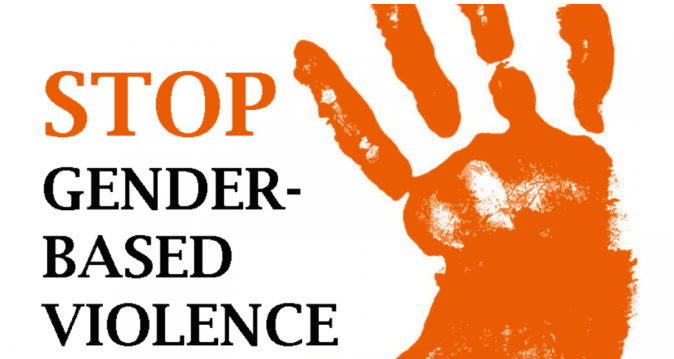How shortage of GBV safe houses affecting recovery for survivors

When Patience, 21, joined university in September 2023, all was well until her second year. Financial and peer pressure pushed her into the arms of a wealthy sponsor.
“I met this old man at a club when I was partying with my friends in Kisumu, barely two years into varsity life. The man was old enough to be my father. I was struggling financially. My peers were living their best lives,” recalls Patience, who sought anonymity.
After the meetup, the man expressed his real intention — transactional sex.
“At first it was all rosy; he was providing me with everything. He was a rich businessman and was a licensed gun owner,” Patience says.
Owing to the age gap, soon they started petty arguments, which spiralled into violent quarrels.
“It got messy when I got pregnant. This is because he never wanted me to keep the baby, so he gave me Sh15,000 to abort the pregnancy…
“I was still stubborn and kept arguing concerning the matter. Then one day he pointed a gun close to my forehead. I was shaken. He literally took me to the hospital and ensured that I underwent an abortion,” she recounts.
Chilling gun experience
Patience was so traumatised by the whole experience she ended the relationship, though she was left with scars of gender based violence because she never went through therapy because she feared her parents reaction.
Her desire was to get to a safe place such as a safe house where she would have gone to to heal.
Ruth (not real name), 21, went through a similar experience like Patience and yearned for a safe house where she could heal.
She was involved in online dating, which left her in a painful and unstable state.
“I met this man on an online dating site. We quickly connected and our relationship blossomed. We started dating as soon as possible. The first four months of our relationship felt like I was living my dream life. Things changed when I confessed to him that I was pregnant. He began to show his real nature as a narcissist,” Ruth recalls.
Ruth recounts instances when his alleged boyfriend would force her to eat about 10 raw peppers as well being boxed out as a form of punishment.
Trauma reloaded
She says the man exacerbated his infidelity and anger to a point that led her into self-isolation and depression.
“I developed social anxieties because of the mistreatments and I could not even talk to people. When he brought a lady I felt low and I decided to go back home. I left totally scared,” Ruth tells Modern Family.
Ruth is yet to seek psychological guidance. She struggled to find a safe place to seek refuge and healing as there were no safe house nearby for victims of gender based violence.
Indeed, lack of enough and active safe houses for the Sexual and Gender Based Violence (SGBV) victims continues to blur efforts to combat the vice.
A report released in February 2024, by the former public Service, Gender, and Affirmative Action Cabinet Secretary Aisha Jumwa shows that Kenya had only 54 safe houses whereby only three safe houses were owned and operated by the government.
According to the executive director of Kenya Female Advisory Organisation (KEFEADO) in Kisumu, Easter Okech, one of the main challenges that SGBV victims face is the lack of enough and functional safe houses for them to heal physically and psychologically.
“Safe houses are highly recommended for the victims of GBV. However, they are not enough. For example in Kisumu County apart from about five safe houses that are operated by NGOs, there is only one public safe house -Tiengre.
The government should increase the number of safe houses to accommodate more survivors. There should also be a transition mechanism because the survivors cannot stay in those spaces for too long. The challenge is that sometimes the survivors have nowhere safe to go,” Okech points out.
Healing process
Okech clarified that it is recommended for safe houses to hold and support a survivor up to three months.
However, under rare circumstances, one is allowed to stay beyond the recommended period.
She also clarifies that not all survivors are placed in a safe house as priority is given to victims of intimate partner violence.
She explains how things work in the safe houses.
“During the period in the safe house, some survivors depend on the organisation to support them economically. That is when it becomes a challenge because if you do not have economic support, it means that they will go back to that violent place. However, if the person decides to go back to the toxic place after they have reconciled with their attacker, the officials at the safe house will ensure that they do not re-enter the same cycle of violence,” Okech says.
She also points out another challenge that victims of violence face in their quest for justice.
Okech says even though the government says P3 forms are free, survivors complain that they are still being charged for P3-related matters, such as photocopying.
Dr. Annita Musyoki, a clinical psychologist at Nairobi West Hospital underscores the importance of safe houses in the healing journey for survivors of gender based violence.
Dr. Musyoki says psychosocial support is vital as trauma not only disrupts a person’s mental health but also their social functioning since trauma can isolate survivors from their support systems therefore leaving them vulnerable.
“The Gender Based Violence survivor will also be stigmatised or ashamed and do not wish to be judged by the community around them or the family, and that is why most of them will abandon the GBV scene. Psychosocial counseling, which can be offered in safe houses at the community level, allows them to work through their feelings, reclaim their love for themselves, and re-engage with their community again,” Dr. Musyoki says.
The psychologist notes that survivors who lack support often experience chronic anxiety and depression which transits to post-traumatic stress disorder as some of the victims resort to substance abuse and social withdrawal.
She further highlights that trauma often shatters a survivor’s sense of safety and trust, which makes restoration a challenge.
“A mother who has been abused may have difficulty getting near to her children since she is afraid of being judged by them or blamed for the violence. The same applies to a young woman who experienced sexual harassment at her workplace, as she might find it hard to concentrate or trust colleagues therefore affecting her work performance,” Dr. Musyoki says.
Dr. Musyoki recommends Cognitive Behavioral Therapy to survivors for swift recovery in safe houses. This therapy enables the victims to question negative thinking patterns and establish effective coping mechanisms. She also emphasises that survivors of SGBV need support groups.
Meanwhile Patience and Ruth continue to live with the unhealed scars of sexual gender based violence. Safe houses are indeed needed by these survivors to enable them to heal faster.















